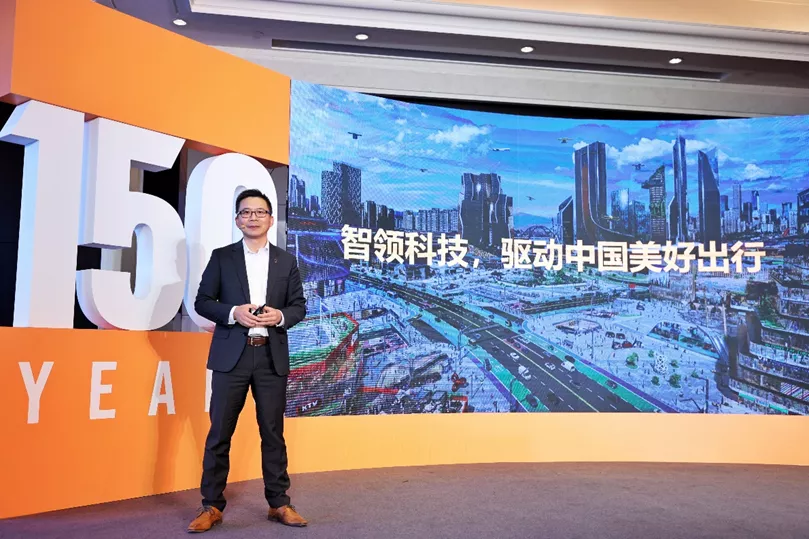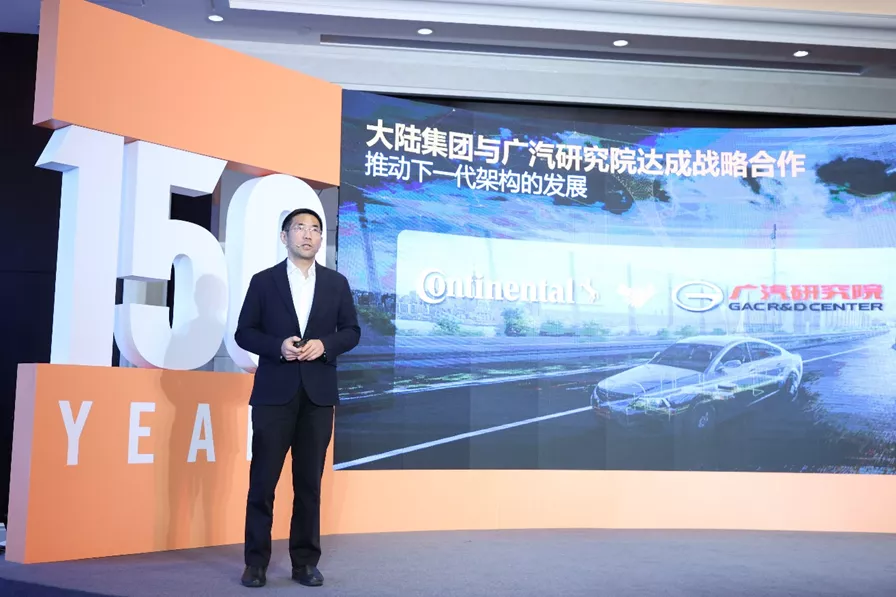GoingHundred, Focusing on the Evolution of the Automotive Travel Industry
Author: Kuang Ji
There have been many big and small events in the industry in the past week. For example, Faraday Future (FF) received a letter from the Securities and Exchange Commission (SEC) regarding the late submission of Q3 financial report. Meanwhile, Evergrande Auto actively rescued itself by negotiating with potential buyers to sell some of its assets, including the wellness valley, new energy vehicle life project, and others. Also, Wanda Group established Wanda Auto Technology Service Company, claiming to prepare for the Red Flag car settling in Wanda Plaza instead of producing cars.
However, all these events, though catching attention, cannot match several other occurrences below.
On November 25th, Beijing officially opened the first domestic commercial pilot of autonomous driving travel service and announced the accompanying management policy – “Beijing Intelligent Networked Vehicle Policy Pilot Zone Automatic Driving Travel Commercial Pilot Management Implementation (Trial) Measures” were simultaneously introduced. This marks a milestone in the domestic autonomous driving field, moving from testing demonstrations to exploring commercial pilot, with significant implications for changing the future travel mode.
Kong Lei, Director of Beijing’s Senior Autonomous Driving Demonstration Area, introduced that in April this year, the first intelligent networked vehicle policy pilot zone in China was established based on Beijing’s senior autonomous driving demonstration area with the nationwide leading policies regarding policies, such as unmanned delivery vehicles on the road, highway testing, and unmanned testing, released.
Currently, the demonstration area has accumulated nearly three million kilometers of safe testing mileage. The innovative management policy has achieved good results, and it is time to launch commercial pilots. Commercial pilot is the final step for the landing of autonomous driving application scenarios, forming the industrial closed loop.
It is reported that Baidu and Xiaoma Zhixing became the first batch of companies to be permitted to carry out commercial pilot services, and at this stage, they will invest fewer than 100 autonomous driving vehicles for commercial pilot services within the 60 square kilometers of the Beijing Economic-Technological Development Area.
According to this management policy, under the principle of ensuring a fair market competition, the two companies can adopt market-oriented pricing mechanisms. Besides, experience charging services can only be started after specifying fare principles, payment methods, and other information to passengers.
It is worth noting that safety and control are the most important basic principles for conducting commercial pilot activities this time. Strict requirements for the protection of personal information and network data security are proposed, with the data collected during commercial pilot required to be stored and used within China and cannot go abroad without approval.For violations that may occur during the commercialization pilot process, Beijing Self-driving Office will take measures such as talking with the offenders, suspending the pilot operation of some vehicles, suspending the pilot operation of all vehicles, and canceling the commercial pilot service qualification according to the severity of the violations. If the situation is severe, Beijing Autonomous Driving Office will also report relevant illegal and irregular clues to the competent authorities.
As good things come in pairs, the Beijing Economic and Technological Development Zone, after securing the first commercial pilot of autonomous driving in China, announced another important event.
On November 27th, Xiaomi Technology and the Management Committee of Beijing Economic and Technological Development Zone officially signed the “Cooperation Agreement,” which announced that Xiaomi’s car project will settle in the Beijing Economic and Technological Development Zone.
Here, the Xiaomi car project will build the Xiaomi car headquarters and sales headquarters, R&D headquarters, and a complete vehicle factory with an annual output of 300,000 cars in two phases. The production capacity of phase one and phase two will be 150,000 vehicles each, and the first production car is expected to be released and put into mass production in 2024.
So as the apple of the eye of Wuhan, Hefei, and other places, why did Xiaomi choose to settle their headquarters in the Beijing Economic and Technological Development Zone? Of course, it is inseparable from the strength and sincerity of the Beijing Economic and Technological Development Zone that attracts talents.
Currently, the Beijing Economic and Technological Development Zone has formed a high-precision industrial development pattern based on four leading industries: the new generation of information technology, high-end and new energy intelligent vehicles, biotechnology and health, and robotics and intelligent manufacturing. Among them, the high-end and new energy intelligent vehicle industry has become the “engine” driving the overall economic growth of the region and the “pioneer” building a high-precision industrial base.
In the Beijing Economic and Technological Development Zone, there are already complete vehicle enterprises such as Beijing Benz and BAIC New Energy, which have promoted the formation of a relatively complete high-end and new energy vehicle industry chain. Furthermore, it has established national-level technology innovation centers such as Guochuang Center and National Automobile Intelligent Connection Center, and created the source of world-class shared key technologies for new energy vehicles. This region has undertaken the major strategic mission of building a high-level autonomous driving demonstration zone in Beijing, creating an integrated development of “vehicle-road-cloud-network map” for intelligent connected vehicle technology and policy highlands.
In summary, the Beijing Economic and Technological Development Zone provides a software and hardware environment for Xiaomi’s car project during its development phase, and it is not mean to say that it is an excellent place to recruit talent.
In addition, the relevant persons in charge of the Beijing Economic and Technological Development Zone have stated that they will use all their power in the region to provide guaranteed services for the Xiaomi car project, promote the project’s early start and early production, and make Xiaomi cars a new energy vehicle national brand with global influence.
On October 25th, while busy settling in, Xiaomi did not forget to continue attracting talent. Xiaomi announced that the Extraordinary General Meeting of Shareholders passed the Xiaomi EV equity incentive plan with a high proportion of approval. The equity incentive plan corresponds to Xiaomi’s car project, and the incentive plan authorizes 1 billion shares, accounting for 10% of the total number of shares issued by Xiaomi EV.It is reported that Xiaomi EV is mainly responsible for the smart electric vehicle business of the Xiaomi Group. The equity incentive plan is aimed to provide opportunities for eligible talent teams to obtain Xiaomi EV rights and encourage them to create long-term value for Xiaomi EV and the company. Meanwhile, through the equity incentive plan, Xiaomi EV can retain, motivate, and reward talents who meet the incentive requirements in a flexible way.
Nowadays, Xiaomi’s car business is almost ready, except for the qualification to produce cars. Will the rumored qualifications from Baowo Auto become a reality?
To be honest, at this time of major industry changes, although the market environment is fiercely competitive, it is also a good era of all flowers blooming and boats competing in a hundred rivers. Newcomers are racing ahead, and old players are still strong and determined to go the extra mile.
Last Wednesday, I attended a birthday party for a 150-year-old man. Mainland Group, which has been in the Chinese market for 26 years, reviewed its history of innovation and change with the theme of “150 years-We Always Drive Future Travel with Technology” and looked forward to the future development trend of travel.

At the party, Tang En, president and CEO of Mainland Group China, and guests from the four major business groups shared the recent progress and measures taken in accelerating transformation, strengthening local R&D capabilities, establishing an active cooperation ecosystem, and embracing sustainable development.
To respond to the new changes in the automotive industry, Mainland Group announced that it will restructure its organization from January 1st next year. The re-optimized Mainland Group will mainly include three major business sectors: Automotive, Tire, and Contitech.
Among them, the Automotive business sector will consist of the Autonomous Driving and Travel Business Unit, the Smart Travel Business Unit, the User Experience Business Unit, the Safety and Dynamic Control Business Unit, the Architecture and Connected Car Business Unit, and the Forward-looking Technology R&D Center.
In order to deepen its localization strategy, Mainland Group has launched a series of strategic initiatives to strengthen its local R&D and innovation capabilities.
In December 2020, Mainland Group established the first hydrogen and fuel cell technology center in Changshu factory. It mainly engages in R&D and production of key components for hydrogen and fuel cell used in new energy vehicles to accelerate the transformation and landing of relevant technological achievements locally.
In September 2021, Mainland Group China Software and Systems R&D Center was officially established in Chongqing, with plans to build a team of about 500 people. The center will focus on software development for intelligent connected vehicles and promote the transition from electronic and electrical architecture (E/E architecture) to integrated architecture.
In response to more and more car companies starting to establish R&D teams in the smart cockpit and autonomous driving fields, and even shouting out the slogan of “all stack self-research,” Mainland Group’s strategy is to uphold an open attitude and collectively build a cooperative and win-win ecosystem with all customers and software and hardware partners.
In terms of local ecological cooperation, Mainland Group has successively reached cooperation agreements with partners including Guangzhou Automotive Research Institute, Horizon, Reshape Technology, Zhongxing Technology, and Tuhu Autotech in the fields of intelligent network connection, intelligent driving, green travel, and e-commerce retail.
Tang Entan stated that Mainland Group must continue to promote localization and sustainable development strategies, continuously strengthen local research and development and innovation capabilities, enhance local ecological cooperation, and respond quickly to various changes and demands of the Chinese market and customers.
Because “we are standing at an important historical moment of transformation in the automotive industry and company development.”
This article is a translation by ChatGPT of a Chinese report from 42HOW. If you have any questions about it, please email bd@42how.com.